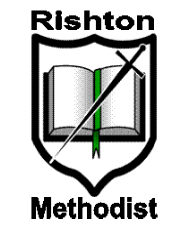Geography
At Rishton Methodist, we want our children to think like geographers and be in awe and wonder of our earth. The teaching of geography is vital to developing life-long learners who seek to maximise the use of resources in their environment, who minimise the impact of their actions and seek to develop understanding of the world they live in. We want our children to be friends of mother nature, developing a rich understanding and love for the world around them. This will be achieved using enquiry questions, which seek to provide answers to the understanding of where things are found, why they are there, and how they develop and change over time. As a result, they should be able to engage with current issues surrounding changes to the world they inhabit, providing our children with the courage to ‘rise up… take courage and do it’ (Ezra 10:4), making changes to positively influence others.
Our teaching will provide children with the knowledge and understanding of key vocabulary and terminologies about diverse places, people, resources, natural and human environments, together with a deep understanding of the Earth’s key physical and human processes using knowledge organisers. Our intention is for our children to be ready to tackle the expectations of KS3 and beyond, while also ‘watching over one another with love’ (Wesley) – ensuring our children work together in making positive changes. Geography is a subject that seeks answers to fundamental questions such as:
- Where is this place?
- What is my role be in creating a sustainable future?
- What is it like? (and why?)
- How and why is it changing?
- How does this place compare with other places?
- How and why are places connected?
Geography draws on its vast range of vocabulary to identify and name places, the features within them and the human and physical processes at work there. Such core knowledge provides the building blocks of deeper explanation and understanding, providing entry points to geographical conversations about the world. We describe this as ‘thinking geographically’ and explicitly teach this to our pupils through our use of knowledge organisers, enabling them to become greater depth geographers, who always strive to achieve more (Jeremiah 17:7-8).
Our aim is to start our children’s geography journey right from the very start of their reception year by building on from the Early Learning Goals of Understanding the World.
In their time in Early Years, children will make sense of their physical world and their community by exploring, observing, and finding out about people, places, technology and the environment. Children will have talked about the lives and roles of people around them. They will begin to look at their local area. In addition, the children are encouraged to share postcards and pictures from places they have visited and begin to ask geographical questions.
In Year 1, children build on the EYFS Understanding of the World, finding out about people, places and the world around us. The children learn about their immediate locality, so they learn about places around our school and grounds. They learn about familiar features such as houses, farms and shops building on their everyday experiences.
Children organise their knowledge, skills and understanding around the following learning:
- Investigate places
- Investigate patterns
- Communicate geographically
These key concepts underpin learning in each year group. This enables children to reinforce and build upon prior learning, make connections and develop subject specific language.
Knowledge organisers are used within each lesson to build upon prior knowledge and aid children’s understanding within each unit.
Though a high-quality education and a strong Methodist grounding our children will exemplify our vision of ‘rise up… take courage and do it’ (Ezra 10:4). Together learning and loving with both God and our changing world.
Evidence
At Rishton Primary, children have the opportunity to record their learning in a variety of ways, which is recorded within topical books. Evidence of the learning is dependent on the lesson outcome, year group and the knowledge and skills being developed. This can be in the form of extended writing, photographs of fieldwork and other geographical activities and speech bubble comments relating to the learning.
Assessment
Teachers assess children’s learning throughout each lesson to ensure understanding of skills and knowledge before building onto future learning. Teachers use a range of questioning and retrieval practice to assess children against the aims of the lesson. In addition, children will also complete end point assessments at the end of each unit to assess their substantive and disciplinary knowledge.
Subject Leaders
Subject leaders will conduct deep dives, which include lesson drop ins, pupil interviews and book looks to measure the impact of our teaching, based on how much children can remember. Subject leaders will meet with SLT and will moderate the work and monitoring outcomes to ensure that standards are exceeding the expectations.
Updates September 2023
